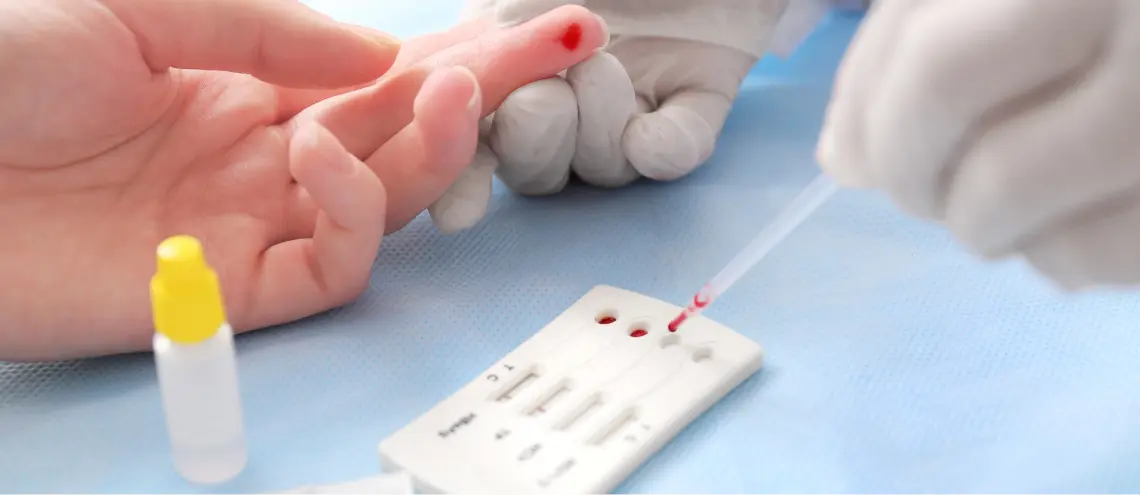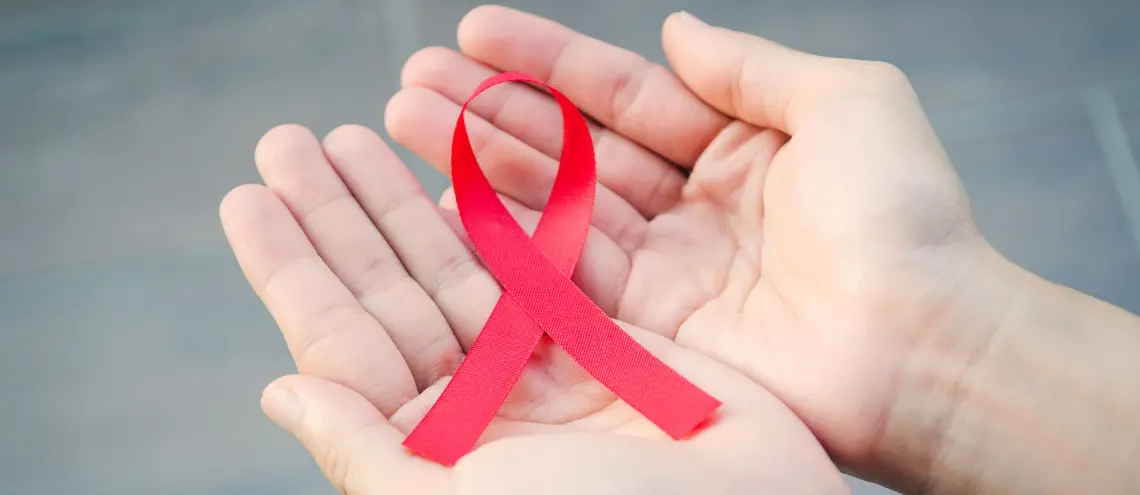HIV Insurance in Thailand
Although HIV is widely recognized as one of the deadliest diseases, advancements in medicine have allowed HIV patients to lead relatively normal lives despite the disease, with the help of antiretrovirals such as abacavir, emtricitabine, and lamivudine.
Having said this, HIV care is expensive and will require the safety net of health insurance. It’s also important to note that insurers will most likely decline coverage for individuals who have already been tested positive for HIV, requiring proper information.
This Pacific Prime Thailand article will discuss where and how travelers and expats living in Thailand might get exposed to the virus, what their treatment options are, and how to protect themselves from contracting HIV in Thailand.
What is HIV/AIDS?
HIV is short for Human Immunodeficiency Virus. It attacks the body’s immune system and lowers the infected person’s ability to fight other diseases, making him or her significantly more vulnerable to developing infections.
HIV can be transmitted only in three ways:
- Through blood
- Through sexual contact (and in extremely rare cases, oral sex)
- During labor, when the mother transmits the virus to the child (assuming the mother did not take special drugs to prevent transmission to the child)
When it comes to the early symptoms of HIV, or how many days HIV symptoms start to appear, it’s recommended to read up on it for greater clarity. In brief, early symptoms include but are not limited to:
- Fever and chills
- Tiredness
- Headache
- Swollen lymph glands
- Sore joints, muscles, or throat
- Rash
- Weight loss
One thing to note here is that HIV may not show any symptoms for up to 10–12 years. The virus carrier may not even be aware that he or she has it and end up infecting their sexual partners unknowingly for many years.
Moreover, HIV infection can only be diagnosed with HIV-specific blood tests to check for the presence of antibodies. It should be performed at least 3 months after the potential infection, as the rate for each individual to produce antibodies varies. Premature testing will generate a false-negative
HIV Testing

When it comes to testing for HIV, Thailand provides a number of options. This includes getting tested at private hospitals, government hospitals, private STD clinics in Bangkok, and at community centers such as the Thai Red Cross AIDS Research Centre.
Here are some popular methods and locations to get tested for HIV in Thailand:
- Government Hospitals: Many public hospitals offer free or low-cost HIV testing. This option is available throughout the country, though you may need to wait in line or schedule an appointment in advance.
- Anonymous Testing at Private Clinics: Clinics like PULSE Clinic Bangkok, Pattaya, Phuket, and Chiang Mai provide confidential, anonymous HIV testing. They offer rapid testing with results in about 15 minutes, and you can choose from several test types, depending on your exposure timeframe.
- WellMed Clinic in Bangkok: WellMed offers a range of HIV testing options and related services such as PrEP and PEP, with a focus on privacy and accessibility. This clinic provides rapid HIV testing and follow-up care as needed.
- Community-Based Testing: Some NGOs and community centers in Thailand, such as the Thai Red Cross AIDS Research Centre, offer free and anonymous testing services, particularly aimed at high-risk groups.
HIV Treatment
HIV is incurable, but effective treatment is available with modern medicine. Treatment consists of taking antiretroviral drugs (ARV) that reduce the amount of virus in the blood. Such viral suppression allows HIV patients to live long and healthy lives.
Here is an overview of some common antiretroviral drugs used in HIV treatment:
- Abacavir (ABC): Abacavir is a nucleoside reverse transcriptase inhibitor (NRTI) used to prevent HIV from multiplying. It’s often prescribed with other drugs in combination therapies to improve effectiveness. Brand names include Ziagen.
- Tenofovir Disoproxil Fumarate (TDF): Tenofovir is an NRTI that blocks an enzyme essential for HIV replication. It’s frequently combined with other antiretroviral agents and is available under names like Viread.
- Emtricitabine (FTC): Another NRTI, Emtricitabine, works well in combination with other drugs to slow the progression of HIV. It is commonly paired with Tenofovir in brand combinations like Truvada.
- Efavirenz (EFV): Efavirenz is a non-nucleoside reverse transcriptase inhibitor (NNRTI) that directly targets HIV’s reverse transcriptase enzyme. It’s part of the combination drug Atripla and is known for its effectiveness when taken once daily.
- Dolutegravir (DTG): Dolutegravir is an integrase inhibitor, which stops HIV from integrating into human DNA. This drug is praised for its potency and is marketed as Tivicay, or within combination drugs like Triumeq.
- Raltegravir (RAL): Also an integrase inhibitor, Raltegravir is known for quick action in reducing HIV viral load. It’s marketed as Isentress and is often recommended for those new to HIV therapy.
- Atazanavir (ATV): Atazanavir is a protease inhibitor that stops the HIV virus from making infectious particles. Taken with a booster, it is commonly branded as Reyataz and is part of many combination therapies.
- Darunavir (DRV): A powerful protease inhibitor, Darunavir is often used in combination with other drugs for patients resistant to other treatments. It’s available under the brand Prezista.
A patient taking medication can lead a normal life and engage in sexual intercourse, but only with the use of a condom. A good-quality condom, used from the beginning to the end of sexual contact, protects his/her partner against infection with almost 100 percent effectiveness.
AIDS
AIDS is the late stage of HIV infection. Therefore, it is not a separate virus. It refers to the most advanced stage of the disease in which the immune system is almost completely devastated. The patient suffers from infections (e.g., pneumonia, which for HIV carriers can be fatal).
Almost every case of HIV will sooner or later lead to the development of AIDS. It can happen within a few years without treatment and even longer in the case of early antiretroviral therapy. According to today’s state of research, AIDS is an incurable disease that ultimately leads to death.
HIV in Thailand
Currently, 94% of people living with HIV in Thailand are aware of their condition. In addition, AIDS-related deaths fell by almost two-thirds, while new infections have fallen by 58% since 2020. The government’s effort in controlling the disease is significantly impactful, as reflected.
Thai citizens have free access to HIV tests, screenings, and drugs. Tourists and expats alike should seek help in private hospitals, where they can communicate in English with medical staff.
Here’s an overview of Thailand’s progress and current status in managing HIV/AIDS:
- Current Awareness and Mortality Rates: Approximately 94% of individuals living with HIV in Thailand know their status, reflecting the success of nationwide awareness and testing efforts.
- Government Initiatives and Accessibility: Thailand offers free HIV testing, screenings, and treatment to its citizens as part of its universal healthcare program. Foreigners, including tourists and expatriates, can access these services in private hospitals, which often provide English-speaking medical staff.
- Thailand’s 2025 Goals: Thailand is on track to meet the UNAIDS 95-95-95 targets by 2025, which aims to ensure that 95% of those living with HIV are diagnosed, 95% of diagnosed individuals are on treatment, and 95% of those on treatment achieve viral suppression.
- Affordability of Treatment and Drugs: Many HIV/AIDS medications are produced domestically, keeping treatment costs relatively low. While Thai citizens benefit from government-funded HIV care, foreigners not on a work visa may have to wait longer for testing and treatment in public hospitals.
- National Strategy to Eliminate HIV: Thailand’s 2017–2030 National AIDS Strategy is a roadmap toward eradicating HIV as a public health threat by 2030. The country’s policies, public health initiatives, and destigmatization campaigns have made it a model for HIV/AIDS management in the region.
Insurance Options for HIV-positive Expats in Thailand
As a general rule, international insurers won’t offer coverage for HIV/AIDS-related treatment to someone who has already been tested HIV-positive. Similar to other Sexually Transmitted Diseases (STDs), HIV is normally outrightly excluded from coverage in most health insurance plans.
However, some insurers may exclude it only if it was transmitted through sex but will cover you if it was contracted through other means (e.g., blood transfusion) and only if you got infected while enrolled in your current insurance plan. It is crucial to study the policy regarding coverage areas.
In Thailand, HIV-positive individuals can generally access health insurance under certain conditions, although coverage may vary depending on the insurer and type of policy.
Below are some scenarios where insurers typically provide coverage for individuals living with HIV:
- Accidental Transmission: Policies may cover cases where HIV was contracted through non-sexual means, like blood transfusions, after the policy’s effective date.
- Non-Disclosure at Enrollment: Although non-disclosure results in instant rejection, if an individual wasn’t diagnosed or disclosed their HIV status before purchasing the policy, some insurers may provide partial benefits for HIV-related care.
- Group Coverage Plans: Some employers may offer group insurance that includes HIV coverage for all employees, potentially bypassing individual exclusions.
Even if that’s the case, this particular coverage usually comes with a long waiting period, meaning a long post-enrollment period must pass before you can use the benefits associated with it. Additionally, you might have to produce a mountain of proof.
Travel Insurance: AIDS and HIV
When it comes to HIV and travel insurance, it’s important to remember that such plans don’t cover medical costs related to pre-existing conditions, including HIV/AIDS.
That said, it is still important to make sure that your travel policy covers every eventuality, such as repatriation, trip cancellation, medical evacuation, accidental loss or damage of personal possessions, loss or theft of money, and other travel-related mishaps.
How to Reduce the Risk of Getting HIV in Thailand

Thanks to modern medicine, hygiene practices, and sexual education, people are more cautious when it comes to HIV risks, meaning they know to get tested, practice safe sex, and do not share needles or syringes. This helps to reduce the risk of contracting HIV.
There are a few precautions you can take to reduce your risk of contracting HIV in Thailand. Consider the following:
- Get tested and know your partner’s status: HIV tests are readily available at public hospitals and clinics in Thailand. The result can help you both take the necessary steps to avoid spreading it further, such as by undertaking antiretroviral therapy (ART) to minimize the viral load in one’s body.
- Practice safe sex: HIV is mainly spread by having anal or vaginal sex without a condom or without taking medicines to prevent or treat HIV.
- Limit your number of sexual partners: The more partners you have, the more likely you are to have a partner with HIV (whose infection is not well controlled) or to have a partner with a sexually transmitted disease (STD).
- Consider pre-exposure prophylaxis (PrEP): PrEP is an HIV prevention medication for people who are or might be at risk of contracting it. For more information, you may also read up on PrEP in Thailand: the cost and where to buy it.
- Be careful with injections: Injecting drugs or medical injections through non-sterile equipment also increases the risk of contracting HIV.
Conclusion
Knowing the healthcare and disease landscape of each country is crucial for expats and travelers; Thailand is no exception. Sexually transmitted diseases are common all over the globe, so practicing caution and knowing where to get treatment is essential.
While you can’t always predict what will happen, knowing the risks and ways to reduce the chances of contracting HIV is a good start. And while caring for your own health is the top priority, our team at Pacific Prime Thailand can help simplify health insurance and medical matters for you.
Whether you have more questions about or would like to secure an expat health insurance plan, we are here to assist you in choosing the medical plan best suited to your needs. You may also want to read up on the state of mental health and rabies outbreak in Thailand.
Contact us for impartial advice or a free plan comparison and quote today.
Frequently Asked Questions
Is HIV common in Thailand?
It is estimated that 560,000 people are living with HIV, according to statistics recorded up to 2022. The number accounts for about 1% of the total population. Thailand has seen declining numbers in the number of cases through making diagnoses and treatments readily available publicly.
Is Thailand a high-risk region for HIV?
Thailand is one of the high-risk regions for HIV. There are rising cases of HIV among young people. The disease is usually spread through four channels, namely female and male sex workers, drug injections, and men-to-men unprotected sex.
What are the treatments for HIV in Thailand?
Thailand uses the universal treatment ART for all HIV patients. Around 81% of HIV patients have their condition controlled under ART in Thailand. As HIV medications are locally produced, they are affordable for most people.
- Chikungunya in Thailand - March 27, 2025
- HIV Insurance in Thailand - March 17, 2025
- The Top 10 Best Dental Clinics in Pattaya - January 13, 2025





Comments
Comments for this post are closed.
We'll notify you
when our team replies!